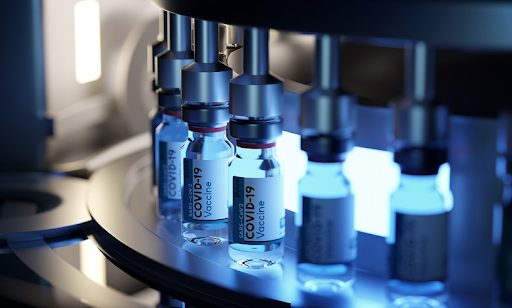#COVID19: MSF Urges Moderna, Pfizer To Share Vaccine Technology Via WHO
Médecins Sans Frontières says Moderna has received significant public funding for the COVID-19 vaccine.

Médecins Sans Frontières/Doctors Without Borders (MSF) has urged Moderna and Pfizer companies to immediately share their mRNA vaccine technology and know-how to a hub in South Africa through the World Health Organisation (WHO).
The international NGO said this during a virtual webinar session on COVID-19 tools and local production in Africa held on Friday, Nov. 5.
The organisation raised concerns on secrecy behind the production of the vaccine, how African countries can produce these vaccines much faster, and why pharmaceutical companies are not given the option to license them and produce them, like most developing countries.
Alain Alsalhani, Pharmacist, and MSF Access Campaign said MSF has asked Pfizer to share the technology with the WHO hub, seeing that Moderna and Pfizer have had partnerships with manufacturers for over two months
Taking Moderna as an example, Alain pointed out that “it’s a company that is almost entirely dependent on contract manufacturers to produce their vaccines.”
“Ravi in Spain, which is a manufacturer that has never produced any vaccines before, their business is based on really injectable medicines,” he said.
“So we’ve seen them integrating the technology in an existing facility, and they will start producing the first batches of drug substance six months only after they’ve signed the deal with Moderna.”
He also emphasised that instead of acknowledging them and other NGOs, “Moderna and BioNTech are going for bilateral deals, building their own facilities, which takes a longer time.”
Alain also highlighted that at least seven companies have been identified on the African continent in which Therma, was one of them that might not be vaccine manufacturers, but share the same profile as the Spanish company that he mentioned, “so that potentially could integrate this technology.”
“The reason we think that Pfizer and Moderna are not willing to do so is obviously that they want to hold the control over the technology,” he added.
Sothema, a manufacturing company that produces the sinopharm jab in Morocco has just joined in producing vaccines against the virus.
In the beginning, the manufacturing company was producing 5,000 doses of the vaccine per month, it gradually increased to 15,000 doses per month and in the second year, they are estimated to produce 5 million doses per month after a deal was signed in July for mass production.
Mehdi Zaghloul, Executive Director, Sothema said that some batches have been piloted to the Moroccan Ministry of Health for analyses and by December the first batches will be delivered to the Ministry of Health to be released in Morocco and other countries.
Dr Nicaise Ndembi, Chief Science Advisor, Africa CDC spoke about the financing and demand certainty as part of the issues affecting the production of the vaccine.
“We have seen from the African Union that 99 per cent of the vaccines on the continent are being produced locally and only 1 per cent would use local materials. That figure gives us an idea of how the vaccine manufacturing ecosystem is lacking,”
Looking at the market landscape, he said, “it has to be shaped to be sure that we don’t have those vaccine manufacturing plants that will not be sustainable after covid, or at least after the acute phase of COVID-19 is quite critical.”
“We need to sit with the African leaders … for a way forward, we need to make some regulatory bodies on vaccine production, do we have a vaccine firm where people have a viable project and we take a risk to fund those decisions to minimize the risk.”
Petro Terblanche, Managing Director Afrigen disclosed that they are working closely with Moderna to integrate it to a complete full drug substance and drug product process.
She added that there are challenges in making that possible but bringing the vaccine into the market, which is not only effective and safe but also suitable in terms of access to Africa.
“We are looking at formulations that will give us a more stable vaccine that doesn’t have the cold chain challenges that we are currently facing.”
She further stated that the African height lab is working with partners and also utilising the competence capabilities in Africa and the support of African CDC and African union to produce in a year, clinical trial material of a vaccine which is non-inferior to the Moderna vaccine but suitable for the environments focus on.
Discussing on the technical component of the production of mRNA vaccine that the organisation does not have, Petro said “we have to ensure that regulatory approval is in a timeline for them, if we have a certain support from one of the established ordinary vaccine producers, that will shorten out time, cost less and enable us to go into clinic much easier.”
Support Our Journalism
There are millions of ordinary people affected by conflict in Africa whose stories are missing in the mainstream media. HumAngle is determined to tell those challenging and under-reported stories, hoping that the people impacted by these conflicts will find the safety and security they deserve.
To ensure that we continue to provide public service coverage, we have a small favour to ask you. We want you to be part of our journalistic endeavour by contributing a token to us.
Your donation will further promote a robust, free, and independent media.
Donate HereStay Closer To The Stories That Matter




